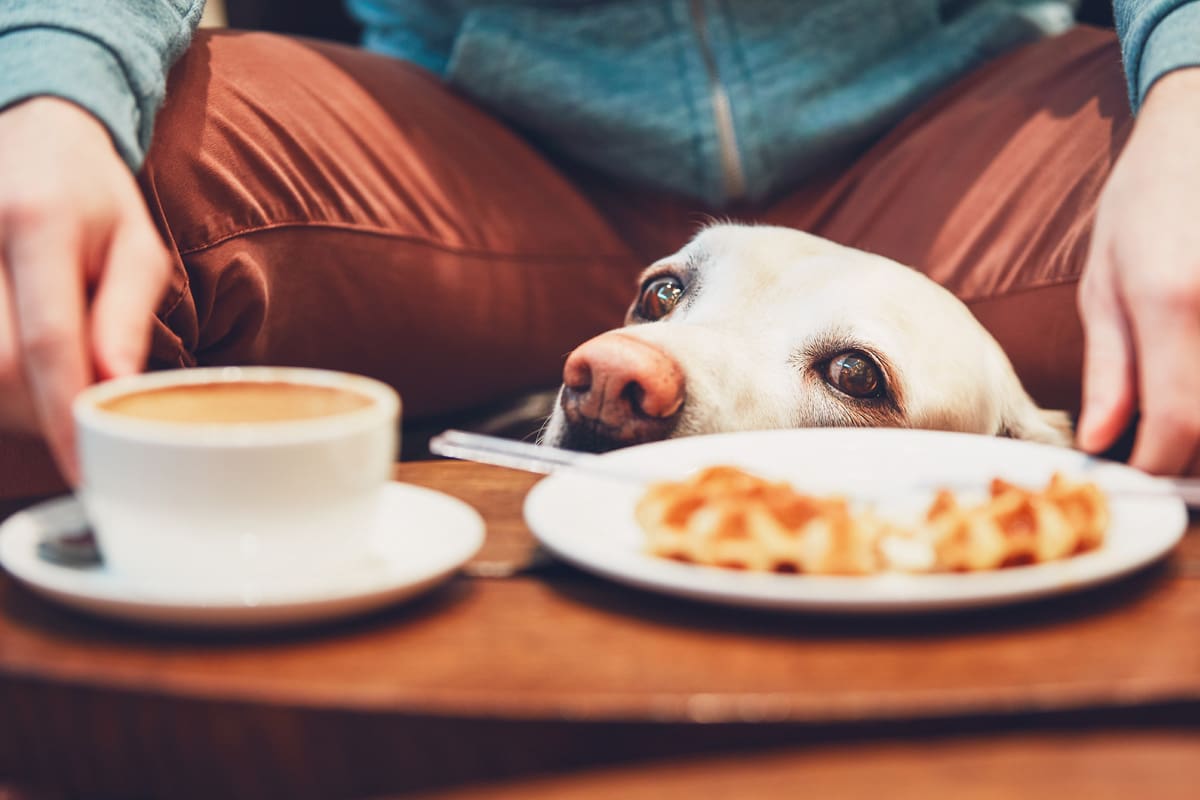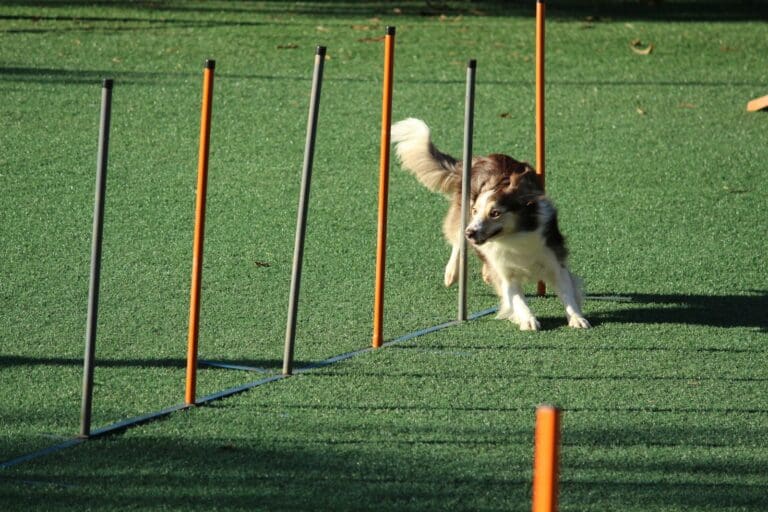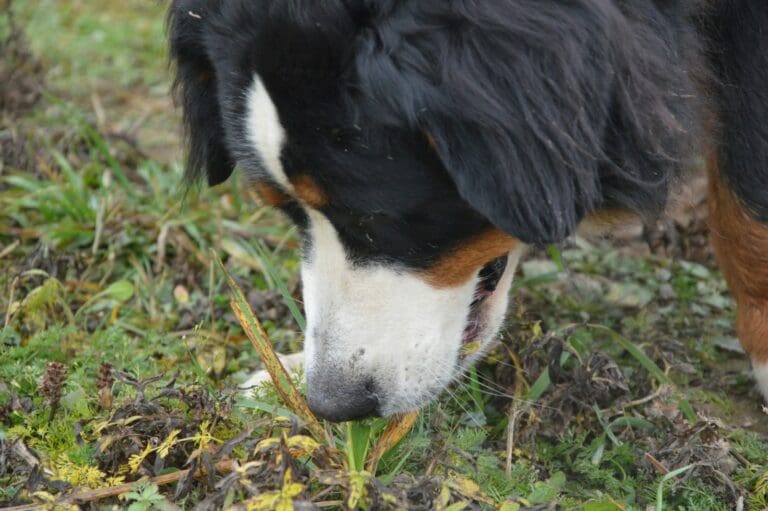As dog owners, we often share our lives—and sometimes our meals—with our beloved furry companions. While it’s tempting to slip your pup a treat from the table, it’s essential to be aware that many common human foods can harm dogs. What might be delicious and safe for us can have serious health consequences for our canine friends.
Here are ten foods and snacks you should never give your dog, along with explanations of the harm they can cause.
1. Chocolate

Chocolate contains theobromine and caffeine, which are stimulants that can lead to heart issues, tremors, seizures, and even death in dogs.
Dark chocolate and cocoa powder have higher theobromine levels and are particularly dangerous and toxic for dogs.
2. Grapes and Raisins
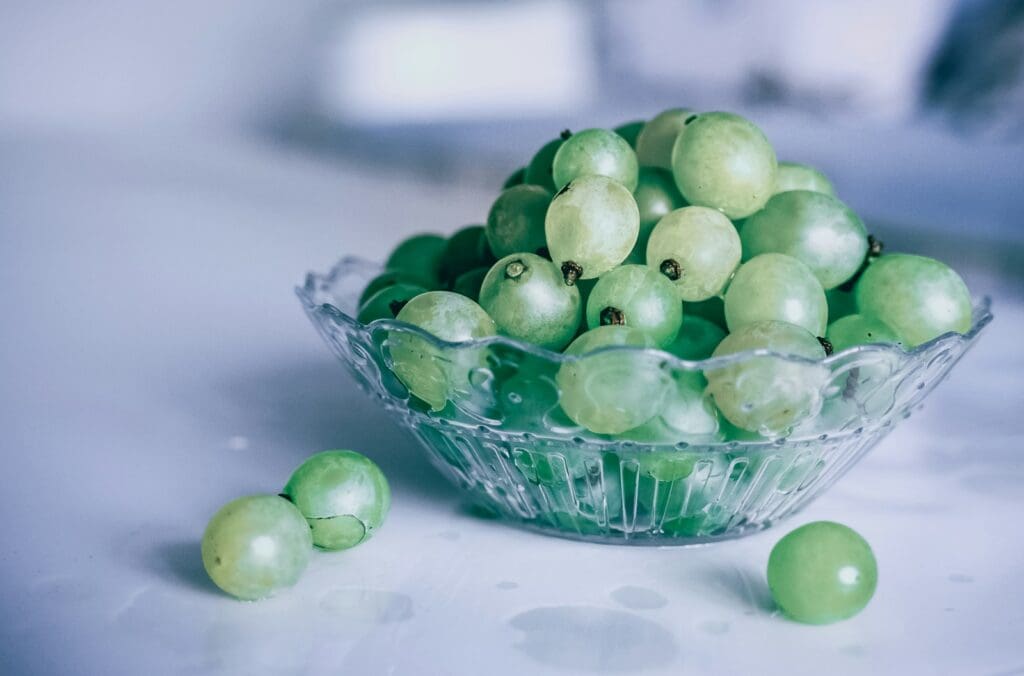
Grapes and raisins can cause kidney failure in dogs, leading to vomiting, diarrhea, and abdominal pain. The first symptom is vomiting, followed by lethargy.
Even small amounts can be toxic, leading to kidney problems, so it’s best to avoid them entirely.
3. Onions and Garlic

Onions and garlic contain compounds that can damage a dog’s red blood cells, causing anemia. Symptoms may include weakness, vomiting, and breathing difficulties.
4. Xylitol
Xylitol is a sugar substitute often found in sugar-free gum, candy, and some peanut butter brands. In dogs, xylitol can cause a sudden insulin release, leading to low blood sugar (hypoglycemia), seizures, and liver failure.
5. Avocado
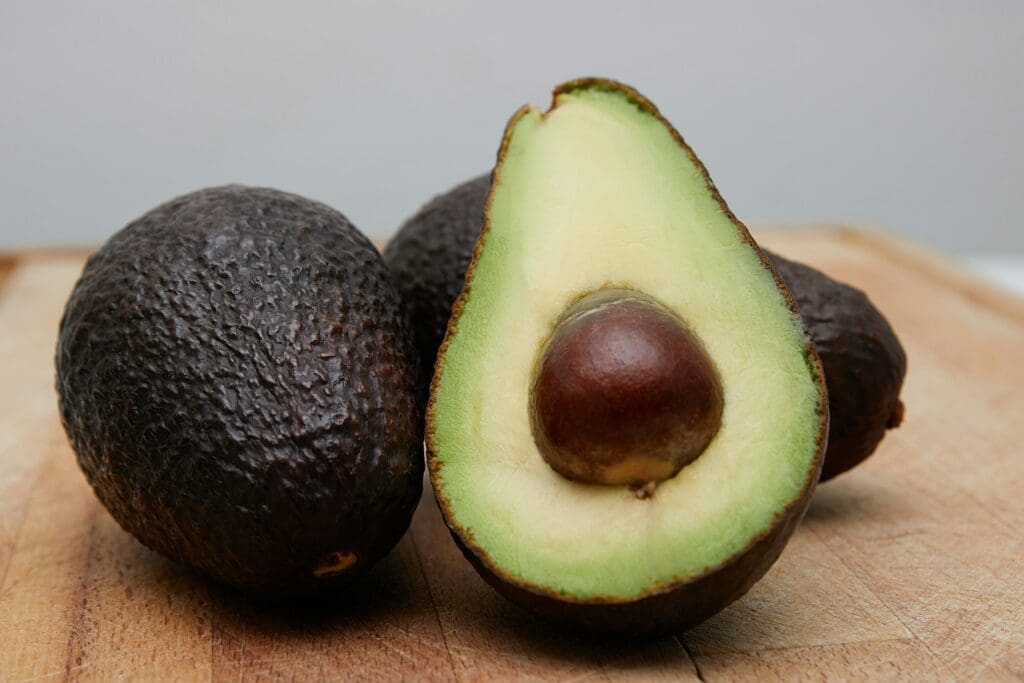
Avocado contains persin, which can be toxic to dogs in large quantities. It can cause vomiting, diarrhea, and, in severe cases, heart congestion.
6. Alcohol

Alcohol can severely affect dogs, including vomiting, diarrhea, difficulty breathing, and even coma. Never give alcohol or leave alcoholic beverages within reach of your pet.
Like humans, a dog’s liver metabolizes alcohol. However, dog’s liver is much smaller, making them much more sensitive to alcohol.
7. Bones (Especially Cooked)
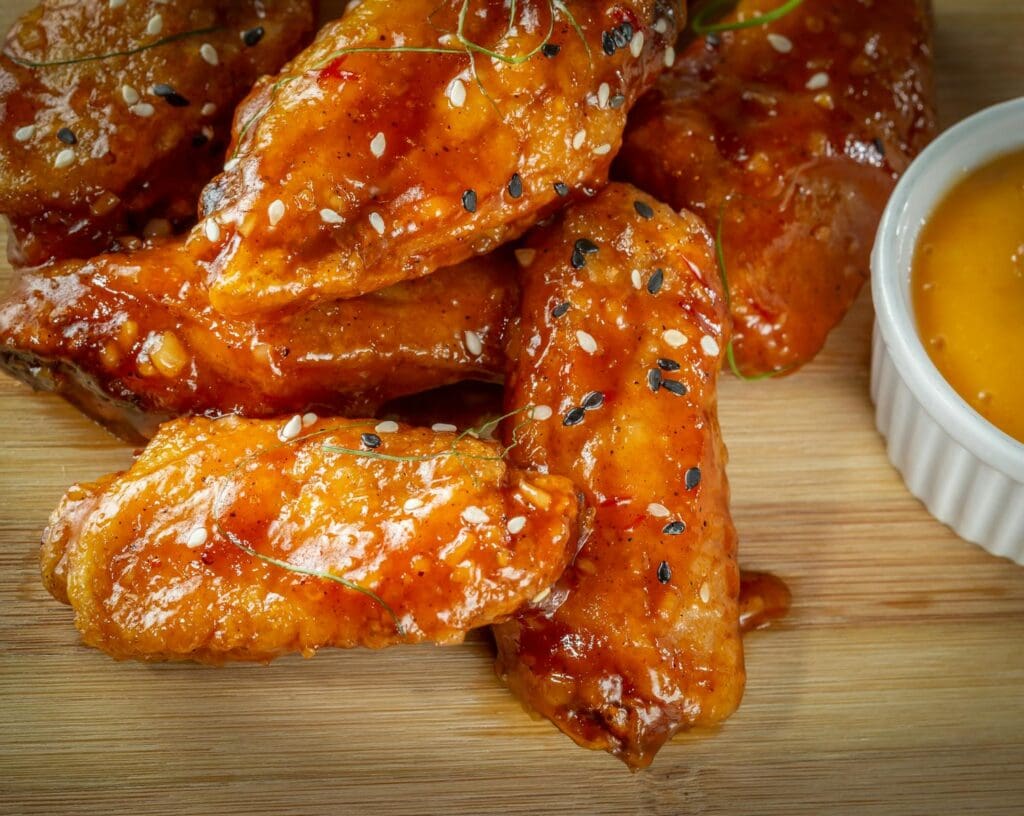
Cooked bones can splinter and cause severe damage to a dog’s digestive tract. Always supervise when giving your dog bones, and opt for raw, non-weight-bearing bones if you do.
8. Salty Snacks
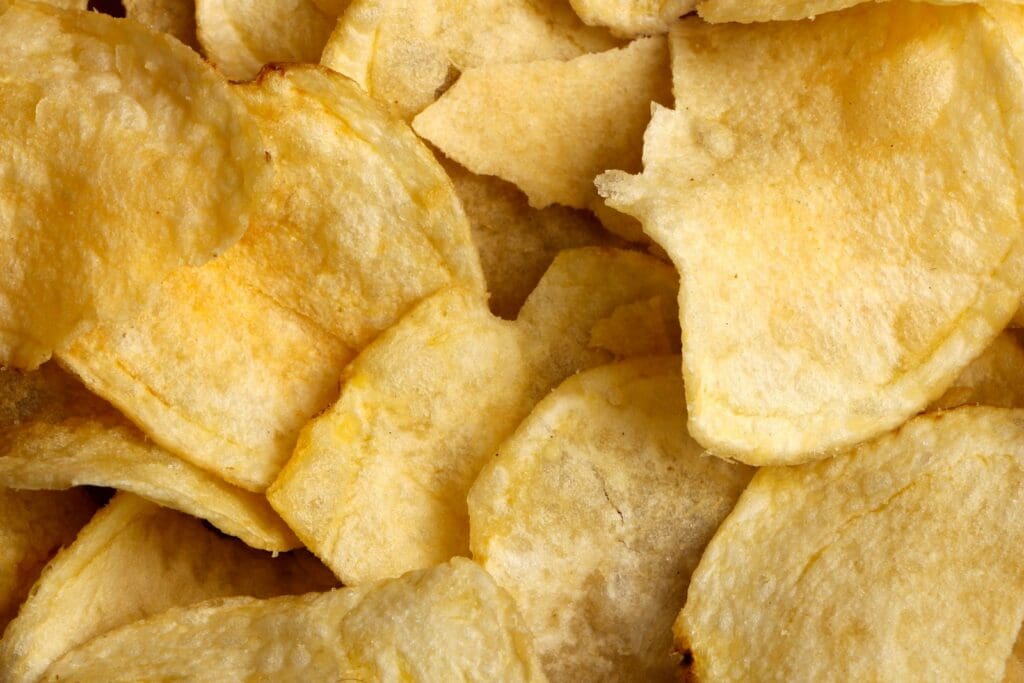
High-salt foods like potato chips and pretzels can lead to sodium ion poisoning in dogs. Symptoms include excessive thirst, urination, and, in severe cases, tremors or seizures.
Also, check the labeling of dog treats to ensure they contain no added salt.
9. Caffeine

Caffeine in coffee, tea, and energy drinks can cause restlessness, rapid breathing, heart palpitations, and muscle tremors in dogs.
10. Macadamia Nuts
Macadamia nuts are toxic to dogs and can cause weakness, vomiting, and elevated body temperature.
Healthy Treats You CAN Give Your Dog
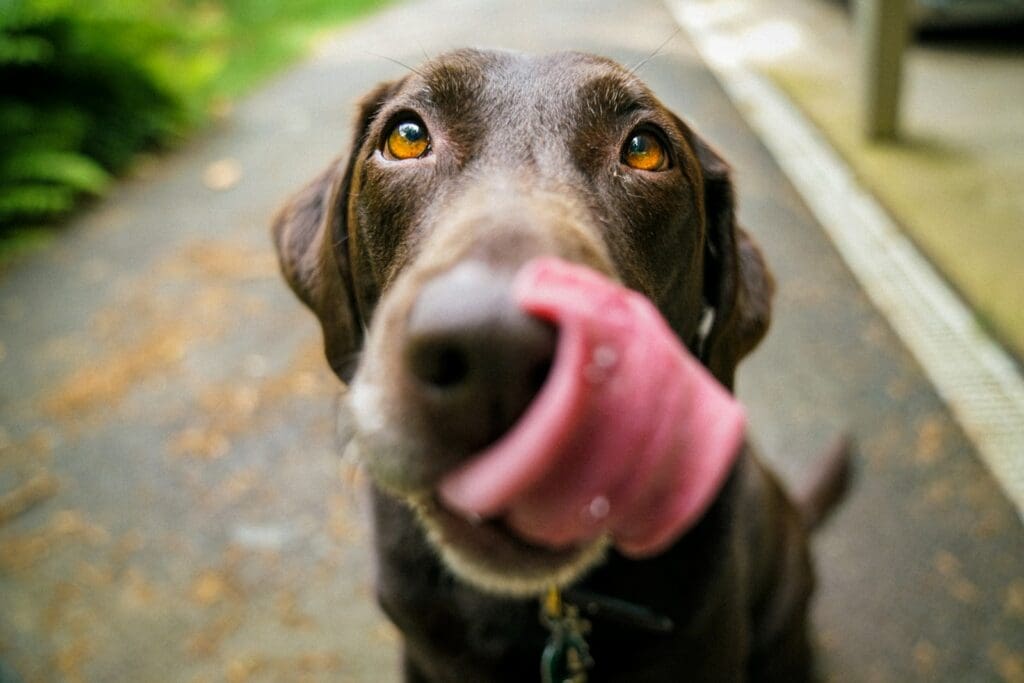
While it’s crucial to avoid the harmful foods listed above, you can share many safe and healthy treats with your canine companion. Here are five examples:
- Carrots: Low-calorie and high in fiber, carrots are excellent for dogs’ teeth and digestion.
- Blueberries: Packed with antioxidants, blueberries can be a tasty and nutritious snack.
- Peanut Butter (without xylitol): Dogs often love peanut butter, a good source of healthy fats and protein. Choose an unsalted peanut butter that is all-natural, consisting of only peanuts and peanut oil.
- Cooked Chicken or Turkey (boneless and skinless): Plain, cooked poultry can be a protein-packed treat for dogs. Make sure not to include any skin or bones. Never give cooked bones to a dog.
- Apples (without seeds or core): Apples provide vitamins and fiber but remove the seeds and core. Apple seeds contain cyanide, which is poisonous to humans and dogs alike.

